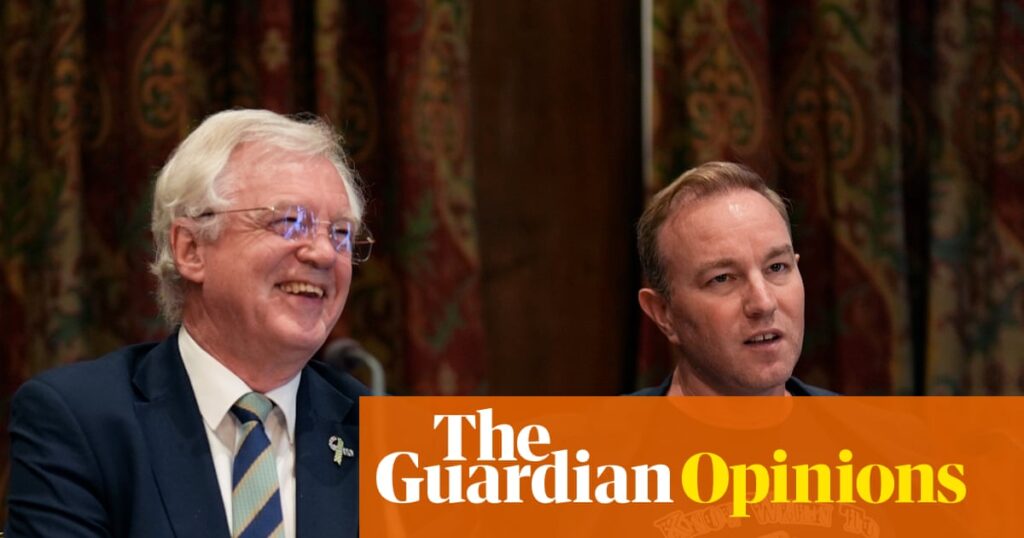Tom Hayes and Carlo Palombo, the two City traders whose convictions for manipulating a key benchmark interest rate were quashed on Wednesday by the supreme court, were made “scapegoats for the sins that led to the financial crisis”, says Sir David Davis, the campaigning MP. It is impossible to disagree. And Davis is right that this “major scandal” ought to prompt questions about how the traders’ cases were prosecuted by the Serious Fraud Office and why it took so long for their convictions to be overturned.
There has been a weirdness about these cases from day one. Hayes, a former UBS and Citigroup trader, was sentenced to 14 years in prison for conspiracy to defraud, the sort of sentence you might get for armed robbery. Hayes’s alleged crime was the rather more technical one of encouraging his employer to make a dishonest submission in answer to this question: “At what rate could the bank borrow funds by asking for and accepting inter-bank offers in a reasonable market size just prior to 11am?”
Welcome to the world of Libor, or London inter-bank offered rate. The benchmark is now discontinued but it was used to reflect the rates at which banks could borrow from each other. A panel of 16 banks made submissions and an average was taken to set the benchmark daily. It exploded into public prominence during the financial crisis because the health of banks – as judged by their willingness to lend to each other – became a matter of huge public concern.
As banks coughed up huge sums in settlements with regulators for Libor-rigging, as it became known, there was political appetite for prosecutions of individuals. Manipulating Libor came to be seen as the epitome of banks’ and bankers’ deviousness, even though, in truth, the benchmark had little to do with the source of the financial crisis – and even though individual traders tended to protest that their behaviour was well known to their bosses.
But it must have seemed an easy thing to prosecute, not least because Hayes himself had admitted to the SFO over 80 hours of interviews that he had tried to influence Libor submitters to put forward numbers that would advantage his trading positions.
The problem was the direction given to the jury in his trial. This is the critical passage in the supreme court ruling: “It was wrong for the judge to direct the jury that, if the submitter took any account of the commercial interests of the bank or a trader, the rate submitted was for that reason not a genuine or honest answer to the question posed by the [Libor] definitions as a matter of law.” Palombo’s trial was compromised similarly.
The supreme court still said there was “ample evidence” that could have led the jury to a guilty verdict for Hayes. But – critically – the judge’s errors in direction “were sufficiently material to make the conviction unsafe”.
The troubling aspect is that Hayes’s lawyers have been making the central point about misdirection for years. The court of appeal, however, dismissed appeals twice. The case made it to the supreme court only after US courts in 2022 decided two other Libor cases differently, saying there was “no prohibition” on taking commercial considerations into account when making submissions. Charges against Hayes were dropped in the US. As Davis said at the time, the UK became “an outlier”.
Seven other Libor convictions in the UK now look likely to be challenged. If they, too, are overthrown little will be left of the SFO’s post-financial crisis pursuit of traders. Davis referred to what he called a “scapegoating exercise” that happened as a result of alleged collusion between the banks and government agencies, including the SFO and the Financial Conduct Authority. There has always been a whiff here of the authorities going after relatively lowly, if well-remunerated, traders such as Hayes and Palombo to satisfy a political wish for scalps.
Hayes’s legal team called for a public inquiry and for the SFO, which has powers to act as both investigator and prosecutor, to be abolished. One suspects neither will happen, although the former would add greatly to public understanding of what happened during the financial crisis. But one hopes that this prod will be acted upon because it came from the supreme court itself: “The history of these two cases raises concerns about the effectiveness of the criminal appeal system in England and Wales in confronting legal error.” You bet it does.


